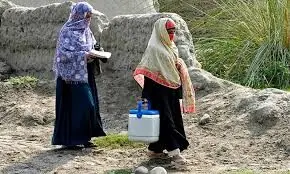KARACHI: Latest research initiatives taken up in various parts of the world on halophytes (salt-tolerant plants) came under discussion on Tuesday, the second day of an international conference currently in progress at the Karachi University (KU).
The three-day event titled ‘Sustainable development: halophytes for green revolution’ has been organised by KU’s Institute of Sustainable Halophyte Utilisation (ISHU) at the university’s business school.
Giving a presentation on his team’s research work focused on improving crop productivity and minimising build-up of salts, Professor Xiaojing Liu of Chinese Academy of Sciences said that research-based amendments in soil structure and chemical composition were important to help prevent degradation of soil.
He agreed with other scientists’ view that utilisation of halophytes as non-conventional crops for arid saline lands held immense potential to ensure food security in the future.
Prof Todd P. Egan from the USA described salinisation of land as one of the major impediments for conventional agriculture especially in the arid and semi-arid regions of the world.
“Lack of rain and high summer temperatures can further aggravate the situation in these areas. Most of our conventional crops are salt-sensitive and can’t endure even low levels of soil salinity. Hence, there is a dire need for innovative approaches to overcome these problems,” he noted.
He also briefed the audience on the work of his team which had prepared a “super absorbent” material that could retain about 90 per cent of the soil moisture and essential nutrients, a prerequisite for long-term crop productivity.
“Use of such material can be of immense aid for high-saline agriculture,” he said.
Prof Hans Werner Koyro, a senior plant ecologist from Germany, delivered his lecture on global climate change and use of biochar; it is a charcoal-like substance produced from agriculture and forest wastes which contains 70pc carbon and is used as a soil enhancer to increase fertility, prevent soil degradation and to sequester carbon in the soil.
“Biochar is a potential remedy to minimise harmful impacts of climate change on plants and can be a solution for enhancing productivity of agricultural land.
“Anthropogenic activities have accelerated global climate changes which are evident worldwide in the form of weather anomalies, drought spells, floods and tsunamis,” he observed, adding that these conditions also impacted crop productivity.
Biochar, according to him, can sequester sodium and heavy metals, which are toxic for plants.
“Hence, the use of biochar can play an important role in cultivation of halophytes as non-conventional crops on saline lands in sustainable way,” he suggested.
Dr Irfan Khan, a senior professor of environmental sciences at Islamic University in Islamabad, gave a presentation on the use of halophytes to achieve United Nations Sustainable Development Goals (SDGs), particularly of SDG-2.
“This specific goal is about eliminating hunger from the world. The cultivation of halophytes as non-conventional crops is also in accordance with Pakistan’s National Sustainable Development Policy,” he said.
He was of the opinion that the gap between policymaking bodies and academia had to be bridged in order for policies to be successful and ensure that research really benefited people at the grass-root level.
The conference concludes tomorrow (Wednesday).
Published in Dawn, January 9th, 2019































